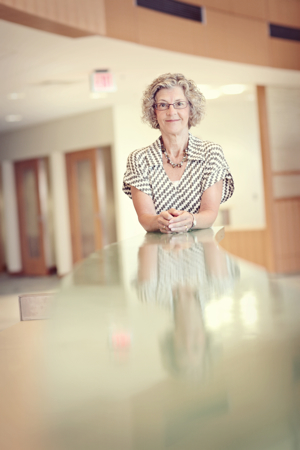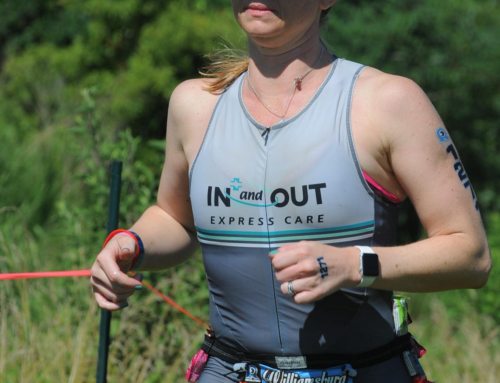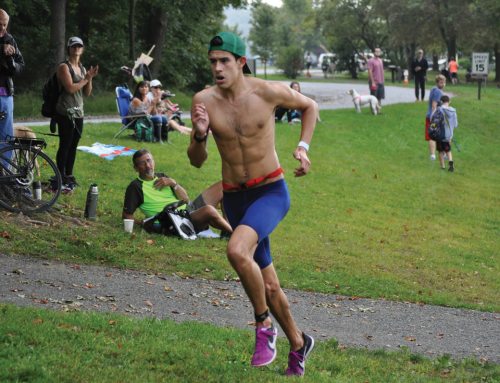 By Dianne Shaw
By Dianne Shaw
Judy Swasey is always on the run, whether it’s seeing patients at UNC Lineberger as a nurse practitioner or training close to 100 women to complete the Komen Race for the Cure. “Coach” Swasey will celebrate her 30th year of running in 2011 and has been committed to giving back what she has gained from being a runner.
Swasey developed a 14-week women’s exercise program when she was in Albany, NY, and initiated the program (now called Sole Sisters) for UNC Lineberger in 2001. “ The program is based on building self-confidence, self-esteem and self-efficacy—‘you need to believe you can do an activity to be successful at it,’” says Swasey.
They meet weekly at the Friday Center in Chapel Hill and follow a training schedule for the remainder of the week. “There’s tremendous social support for Sole Sisters participants,” she explains. “Many former members return as ‘guest runners’ and are interspersed among participants throughout the practice sessions to encourage them and act as role models. We start slowly in Sole Sisters and build on early successes by first walking and then build up to running. We give lots of positive feedback. At the race, some Sole Sisters walk, others run, and some do both.” The program overcomes many barriers to starting an exercise program: cost, safety, convenience and lack of support.
The participants range in age from 20 to 70+ and most have been touched in some way by cancer. “We’ve had a number of cancer survivors take part, usually about 15 percent each year. Some breast cancer survivors don’t reveal their status until Race Day when they don the signature pink t-shirt denoting survivors. “They just want to be part of the group,” Swasey explains.
“Sole Sisters has helped more than 1,000 women develop and maintain an exercise program. Follow-up is done 6 months after the Race and ‘on average,’ she says, “close to 70-75 percent are still doing some type of physical activity, and many women return to the program as volunteers.”
Transformation from being sedentary to being an athlete progresses over the training sessions. Swasey explains, “Many women don’t see themselves as athletic, but during the training, that self-perception changes. I see them switch from wearing lots of cover-up clothing to tank tops and running shorts. Feeling better, having more energy and, for some, losing weight are good incentives for them to keep it up.”
Swasey concludes, “As a health care provider, I value the importance of exercise in maintaining one’s health and decreasing risk for many diseases including some cancers. Sole Sisters gives me a way to help women begin and sustain healthy lifestyle changes.
Watching the Sole Sisters cross the finish line is very emotional—like watching your children graduate from college—but the most satisfaction comes from witnessing the transformation of a sedentary woman to someone who is healthy, fit and strong who now thinks ‘I can definitely do this’ rather than ‘I could never do that!’ Empowering women through exercise was, and is, the ultimate goal.”
# # #
Dianne Shaw is deputy director of communications at the UNC Lineberger Comprehensive Cancer Center and has been with the Center since 1984. She is a seventh-generation Chapel Hillian who enjoys contra dancing and yoga. E-mail Dianne at dianne_shaw@med.unc.edu.






